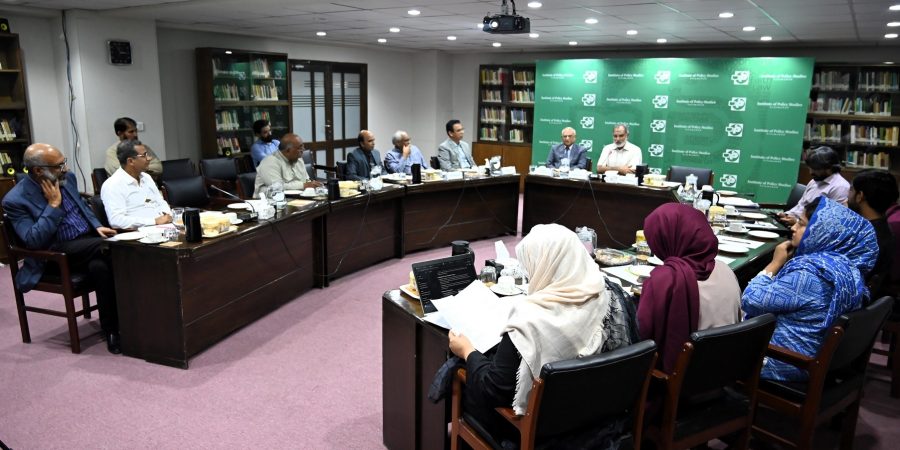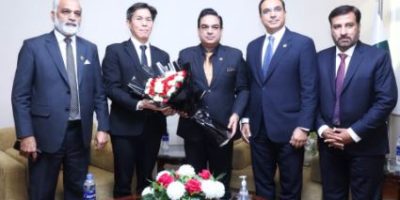Experts Urge Indigenous Regulatory Framework for Introducing GMOs in Pakistan

ISLAMABAD, OCT 31 (DNA):With scientific findings on GM crop safety still inconclusive, a strategic evaluation before introducing GMOs in Pakistan is essential and should be guided by a robust regulatory system. This mechanism, grounded in indigenous research, mobilization of local resources, and tailored safety standards, must account for Pakistan’s unique agricultural and environmental conditions. Moreover, addressing ethical, health, and environmental concerns is equally paramount. As Pakistan explores this path, a framework that prioritizes national interests, public health, and ecological balance remains crucial.
This was discussed during a roundtable on “Food Security and Genetically Modified Organisms (GMOs) in Pakistan,” at the Institute of Policy Studies (IPS), Islamabad. The panel included Khalid Rahman, chairman IPS, Dr Anwar ul Hassan Gilani, former vice-chancellor, The University of Haripur, Dr Shaukat Ali, director National Institute of Genomics and Advanced Biotechnology (NIGAB), and Dr Zahid Akram, professor, PMAS Arid Agriculture University, Rawalpindi. The session was also attended by academia, experts, government officials, researchers, and representatives of farmers.
The discussion noted that while genetic modification has become integral to advancing agricultural technology, there remain valid concerns over its long-term impacts on human health and environmental stability. This highlights the need for a strategic evaluation and robust regulatory framework, that is efficient in both content and implementation and prioritizes long-term gains of food security, public health, and environmental sustainability.
The speakers noted that research, highlighting the potential of GM crops to meet the demands of a growing population by focusing on their high-yield capacities and resilience to pests, weeds, and adverse weather conditions, is mostly donor-initiated. However, as the speakers underscored, these donor initiatives may overlook local agricultural realities and the priorities of primary stakeholders, such as farmers and consumers.
In this regard, the participants advocated for indigenous research and the creation of a comprehensive, inclusive food policy that involves all relevant stakeholders in the decision-making process. This is important to ensure it aligns with national priorities and public welfare.
During the discussion, health and environmental safety emerged as key concerns. Participants referenced studies indicating links between GM food consumption and health issues, including allergies, cancer, and reproductive decline in animal research. The discussion also referenced the World Health Organization (WHO), which has noted that certain herbicides used on GM crops, like glyphosate, may have carcinogenic properties. Additionally, they highlighted that scientific consensus on GM safety is inconclusive, urging further exploration to ensure public health is safeguarded.
The speakers also talked about economic and ethical implications. The high cost of GM seeds could restrict farmers from cultivating their own crops, forcing them into financial dependence on multinational corporations. Furthermore, the frequent application of pesticides and herbicides on GM crops presents added environmental and health risks if not carefully managed. Participants emphasized that any new agricultural policy should prioritize long-term improvements in food security, public health, and environmental sustainability over corporate profits.
In concluding remarks, Khalid Rahman emphasized that the primary challenge for Pakistan’s agriculture ecosystem is not a lack of resources but rather their waste and mismanagement. He urged regulators and policymakers to focus on developing solutions through indigenous frameworks that align with national interests rather than those shaped by corporate interests.
To ensure effective agricultural advancement, the decision-making must be transparent, inclusive, and centered on the welfare of Pakistan’s agricultural ecosystem, environment, and public health. #
Related News

Govt advisor pitches ‘Cashless Pakistan’ vision to foreign investors
ISLAMABAD, DEC 20 /DNA/ – Khurram Schehzad, Advisor to the Finance Minister of Pakistan, heldRead More

ICCI, Thai embassy agree to fast-track trade, tourism and investment cooperation
B2B meetings, delegation exchanges key to brining Pakistani-Thai business communities closer: Sardar Tahir Mehmood ISLAMABAD,Read More


Comments are Closed